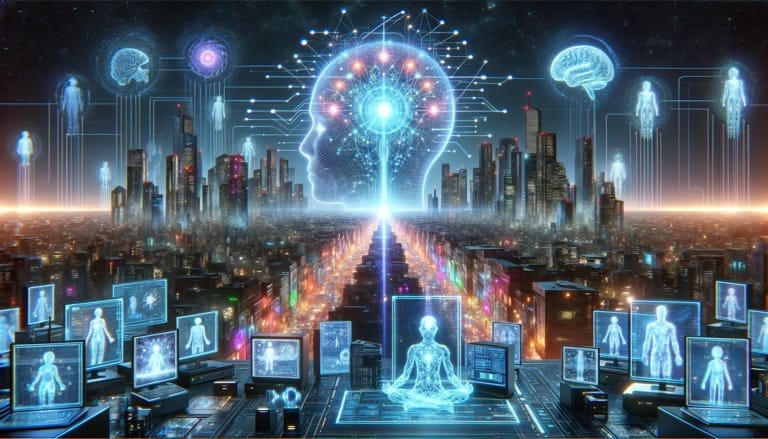Beyond Mortality: The Quest for Digital Immortality in a Future World
As we stand on the precipice of a new era in human evolution, the quest for immortality, once a staple of myth and science fiction, is gradually morphing into a tangible, albeit contentious, scientific endeavor. The concept of transcending our biological limitations through technology presents a groundbreaking paradigm shift, raising

As we stand on the precipice of a new era in human evolution, the quest for immortality, once a staple of myth and science fiction, is gradually morphing into a tangible, albeit contentious, scientific endeavor. The concept of transcending our biological limitations through technology presents a groundbreaking paradigm shift, raising profound questions about the essence of human existence and consciousness.
At the heart of this futuristic pursuit is the concept of 'mind uploading', a hypothetical process where a person's consciousness is transferred from the brain to a digital medium. This idea, while still firmly in the realm of science fiction, is rooted in the belief that consciousness is essentially an information-processing system, and thus, can be replicated on a non-biological platform.
The implications of such a technological leap are immense. Imagine a world where our thoughts, memories, and personalities could live on indefinitely, unshackled from the frailties of the human body. In this digital afterlife, the notion of death could become obsolete, radically altering our understanding of life itself.
However, the path to digital immortality is fraught with complex challenges, both technical and ethical. The human brain, with its intricate web of neurons and unfathomable complexity, remains one of the most enigmatic entities in the known universe. Deciphering and replicating the nuances of human consciousness is a task of Herculean proportions, requiring breakthroughs in neuroscience, artificial intelligence, and computing power.
Beyond the technical hurdles lies a labyrinth of ethical and philosophical questions. What does it mean to be human in a world where consciousness can be digitized? How would digital immortality impact our societal, cultural, and spiritual beliefs? The prospect of eternal consciousness raises issues of identity, privacy, and the very nature of existence.
As we inch closer to this brave new world, the dialogue between science and philosophy becomes ever more critical. We must navigate these uncharted waters with caution, understanding that our decisions will shape the future of humanity.
In conclusion, while the dream of digital immortality remains a distant horizon, its implications are too profound to ignore. As technology continues to advance at a breakneck pace, we must grapple with these existential questions, preparing ourselves for a future where the lines between life, death, and consciousness are forever blurred. This journey into the unknown is not just a scientific endeavor but a journey into the very heart of what it means to be human.




